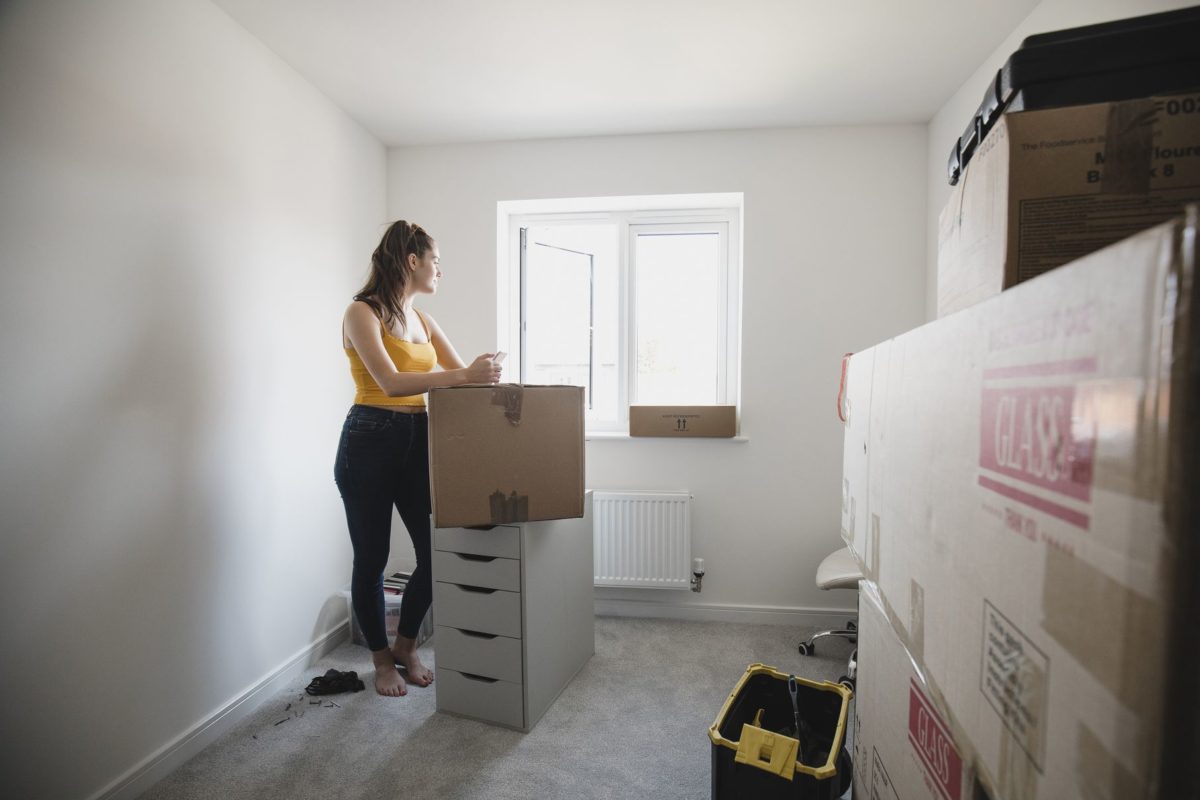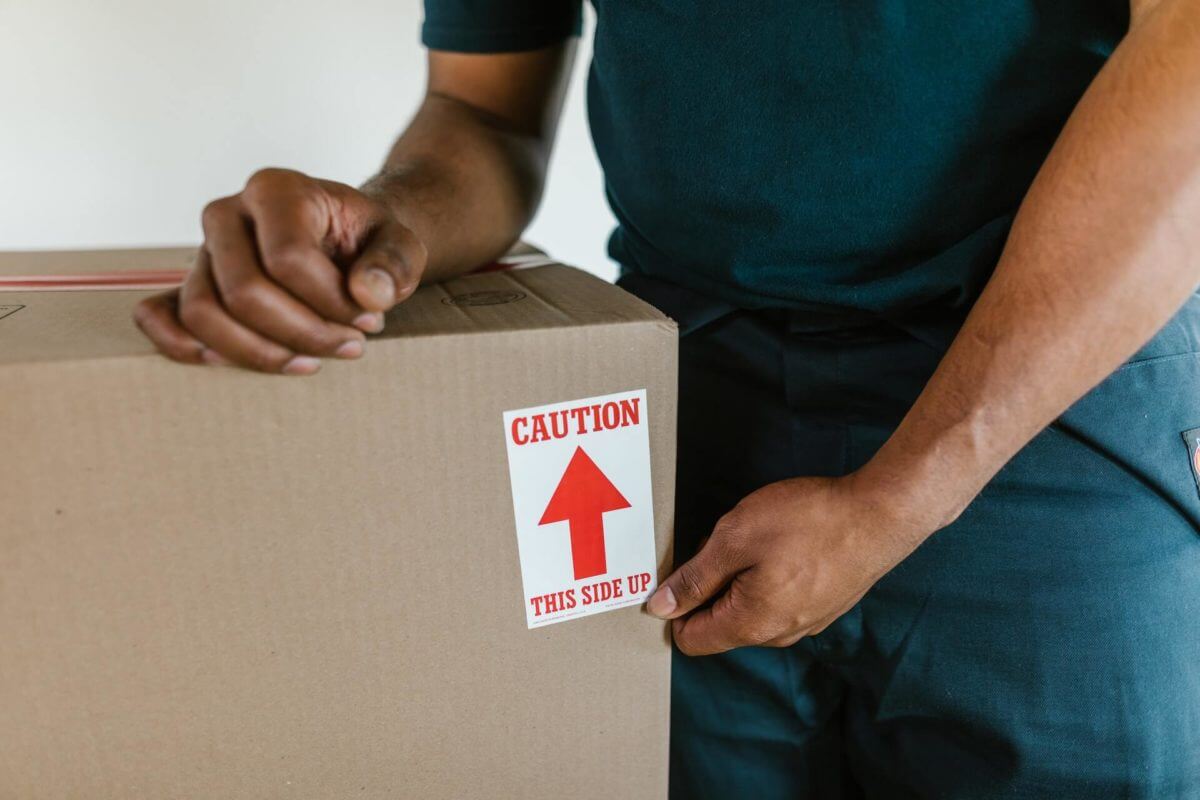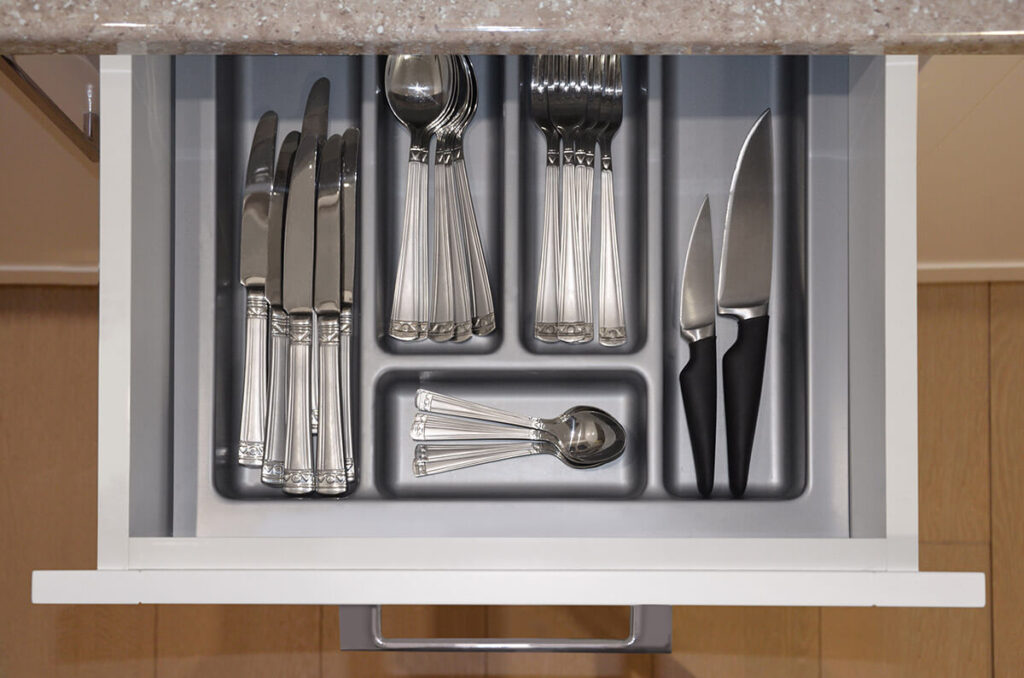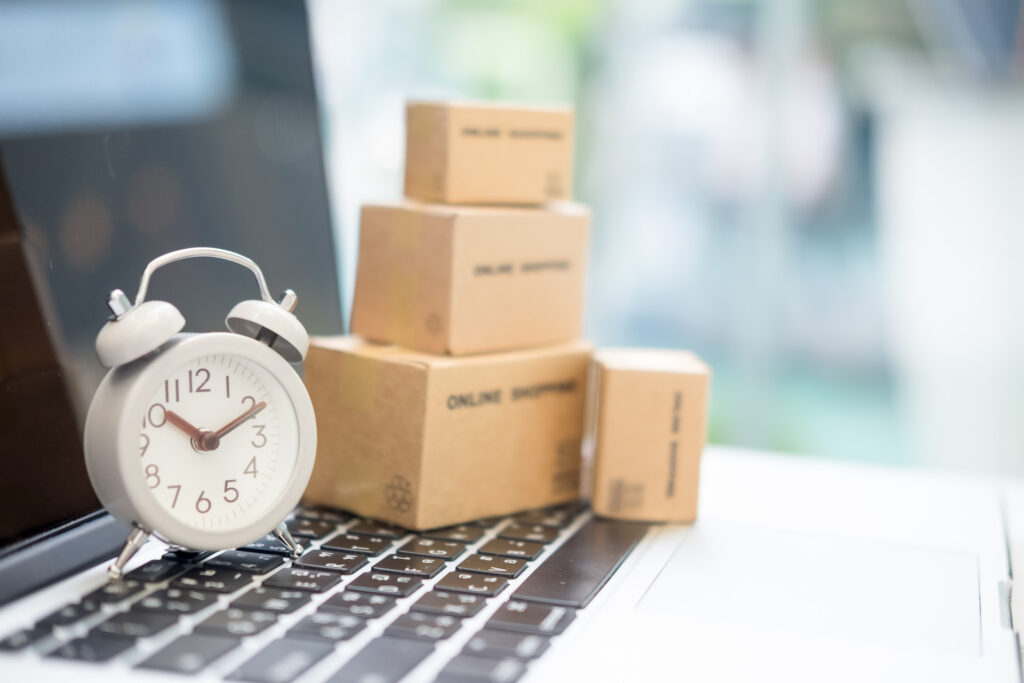Whether you’re relocating to another street, state, or country, the process relies on being organized and responsible. But, in the case of international relocation, staying organized, responsible and stress-free is often harder than it seems. It’s wise to look into how to move efficiently the moment you decide to do it.


Anyone can move to another country, but not everyone can successfully move and live in another country. It requires planning, consideration, and research. You’re probably reading this because you intend to do one or all three of these things. Learn how to make your relocation the most efficient process possible.
The Secret to How to Move Efficiently – Prepare on Time and In-Depth
People who move with kids and pets aren’t the only ones who wonder how do you move efficiently, but they definitely have the most work to do. If you decide to move to Australia because you saw a bunch of footage of Bondi beach, buying swimsuits isn’t the only thing you will have to worry about.
Do they have a coronavirus travel guide, and do they currently accept newcomers into the country? Will you have to learn another language from scratch, or will you and the family be able to adapt immediately? How intense will the culture shock be? All these questions rely on how much and how well you research your destination. There are tons of blogs and forums online that document people’s relocation experiences – take some time to read through them.
Research Is the Mother of Knowledge… or at Least the Most Efficient Way to Pack for Moving
The quickest possible way to move anywhere is to talk to the country’s consulate in the US. Workers at the consulate will give you a list of documents and requirements you have to fulfill to be eligible for immigration. Whether it’s a move to the UK or a quick border hop to Canada, it’s vital to prepare your funds to pay for the initial applications.
So, when should you start packing to move? There’s no right or wrong answer here, but we estimate that it’s best to start packing when you collect the necessary documents for relocating abroad. You will feel safe knowing that all the paperwork is taken care of, and you are one step closer to living abroad.


Moving Abroad Means Don’t Pack Unnecessary Furniture for a Trip Across the Pond
The ultimate question is – how can I make moving easier? At least this one is easy to answer: don’t pack everything you own. If you plan to move abroad for love to your partner’s home, then loading the couch will be redundant. However, even if you are relocating to an entirely new home, there’s no need to bring all the furniture. It’s best to move overseas without too much baggage and weight holding you down.
The biggest exception to this rule would be having a specific working desk and chair that are hard to replace and some emotionally valuable belongings, like grandma’s ottoman. These things are acceptable to ship, and any international moving company will help you protect them for transport with their packing services.
How Do You Move Efficiently? Packing Room by Room Gives the Most Organized Results
You may have heard this one before, but only because it’s highly efficient and effective. Packing one room at a time will help you dedicate enough to decluttering that space and determining how much packaging supplies you’ll have left for the rest of the house.
If you’re then thinking, “okay, but what order should I pack my house to move?” this can also depend on preference. If you have more clutter and decor in the living room compared to the bedrooms, start there. Ensure to have one central room or area where you’ll place all the packed and labeled boxes. That way, when the day for international relocation services comes, the movers can have an easier time transporting them to the truck.
Pack Valuables and Personal Items In Boxes That Will Be With You Throughout the Journey
The most efficient way to pack for moving overseas is also leaving the best for last. While you’re packing all the necessary and unnecessary items, carry a small box with you and add to it the most valuable items from that room. Pair that with things like documents, jewelry, cards, wallets, electronics, and medicine, and you’ll have a nice valuables box to keep by your side to the very end of relocating.
Movers won’t insist on bringing any boxes that are labeled as personal. In fact, their rule is not to load such items in the transportation truck since the responsibility for essential things is only yours. The great part about such movers, including us at Sunset International Shipping, is that they provide moving insurance, so even if some of the stuff in your non-essential load get damaged, we’ve got them covered.


Decluttering Is the Most Important of Any Packing Tips You’ll Get When Moving Overseas
This is similar to the previous topic, but decluttering generally refers to everything you have, furniture, clothes, and clutter included. There’s no chance you need everything at the house. Just look at the stuff you have lying around the garage or any other storage area.
The half-broken parasol from two seasons ago isn’t exactly high-priority baggage. That’s why learning how to efficiently pack to move means the world for your mental and physical health. Decluttering is a blessing for anyone relocating on a low budget, especially overseas. And if you plan on moving abroad alone, reducing the baggage to a minimum will simply be a necessity, not a luxury.
If you change your mind about any items or packed cargo in the meantime, the overseas moving company you hire has a storage service you can take advantage of. That way, you can eventually decide if decluttering was the right move. This could include opting for car shipping services for all your vehicles or just one.
Watch the girl in the video below talk about decluttering and relocating her entire life overseas to be with a long-term partner. You may get inspired to do the same and see how beneficial it is to let go of certain things.
Seal the Boxes Firmly and With Determination (or Let Movers Do It For You)
Movers can help reduce relocation stress significantly if you let them box up all the cargo for you. Still, if you prefer to pack fragile items for shipping overseas by yourself, that’s fine, too. Maybe the piles of boxes end up having a calming effect on you at some point. It sounds like a cruel joke, but some people thrive in chaos, and you don’t know if you’re one of them until relocation day comes.
The vital part of packaging boxes is to seal them tightly. They’re going on a long journey across the sea and need to stay protected and snug in the shipping container. Use the opportunity to go wild with duct tape and plastic wrap, and protect your belongings as if they’re top-secret cargo. After all, you are leaving your entire life and relocating internationally as James Bond would… Do you have something to tell us?
Loading the Relocation Truck Comes First In Transporting Belongings
Before every box ends up in the overseas shipping container, it must be transported with the relocation truck. This step matters as much as any other because unloading it to transfer cargo into the container will make relocating easier. You may have chosen one of the best places to live abroad, but have you thought about the best ways to get there?
If you’re scared or nervous about loading the truck (which is normal,) allow movers to do it. Now you see how learning what is the most efficient way to pack for a move contains many parts. Hiring an overseas shipping company like Sunset International Shipping will really pay off for making those parts come together – contact us today.


Notify People of the Plan to Package All Your Items for Moving Internationally
The overseas shipping company of your choice isn’t the only one to notify about your move. When you make the checklist for moving overseas, put talking to your friends and family about it in there. It seems like an obvious point, but you’d be surprised how often people get caught up in thinking about their new home and forget that the old one still needs some loose ends tied.
It will be tough to adjust to a new country, but it’ll only get trickier if you forget to tell your loved ones about your reasons to move. You will be able to keep in touch and update them on every part of your new life and home, from giving them tips on how to visit you ASAP to whining about how hard it is to learn a new language. In return, they’ll provide consolation and the confidence you need to move forward.
Utility Providers Aren’t the Most Valuable People In Your Life, But They Should Be Notified Nonetheless
It’s true, your relationship with utility providers is not the epitome of closeness, but they deserve to know about this monumental change you’re planning, too. Not because they’re human, but because not canceling utilities will result in you still receiving bills in the mail. And why would that happen if you’re not there anymore?
Instead of starting to rage about how you do not live there anymore and they should know better, remember that it’s your responsibility to let them know. Not just that, but if the new residents of the home keep getting your bills, they will have a not-so-enviable responsibility of storing bills addressed to someone living their best life in Rome while they’re stuck with a pile of envelopes no one cares about anymore.
Oh, and some bonus info – throwing out people’s mail is illegal in the US, and unpaid utility bills can lead to getting caught up in a lawsuit. Just in case you needed more reasons to call your providers, like, right now.


As They Say, the Most Important Thing Is to Have Fun
Relocating across the world is fun. After all, no matter what your reason to move somewhere is, or if the choice was or wasn’t yours, you can still make it fun. Once you land in a different, unknown territory, you can be whoever you want. Not identity-wise, but, for example, if you didn’t have enough hours in the day to spend in nature, maybe there, you will.
You can find supportive and encouraging expat communities anywhere and open up about the fears and problems bothering you. Use the chance to be yourself a lot more than you ever were before. And most importantly, have fun throughout the move.
Frequently Asked Questions About How to Move Efficiently
Some tips for planning a move to make it more efficient include creating a timeline and checklist to stay organized, decluttering and selling or donating unwanted items, packing strategically and labeling boxes clearly, researching and booking transportation and shipping options in advance, and notifying relevant parties of your change of address, such as banks, utilities, and government agencies.
It’s also important to research and comply with all necessary regulations related to your move, such as customs and immigration requirements. Additionally, asking local relocation services for advice can provide valuable insights and resources to make your move more efficient.
It’s recommended to start planning your move at least 2-3 months in advance, or as early as possible, to ensure that you have enough time to research, prepare, and make all necessary arrangements. However, the timeline can vary depending on the specific requirements of your move, such as the distance and logistics involved, the paperwork and documentation needed, and the availability of transportation and shipping options.
To declutter and get rid of items before moving, you can start by sorting your belongings into categories, such as keep, donate, sell, or discard. Be honest with yourself about what you really need and use and let go of items that no longer serve a purpose in your life. You can then donate or sell unwanted items, such as clothing, furniture, or electronics, and discard any items that are broken, expired, or no longer functional.
Some packing strategies for an efficient move include decluttering and downsizing beforehand, using high-quality packing materials, labeling boxes clearly with their contents and room destination, packing similar items together, and protecting fragile items with bubble wrap or other cushioning materials. It’s also important to pack a “first-night” box with essentials such as toiletries, bedding, and a change of clothes, and to pack valuables and important documents separately for safe keeping.
Whether to hire professional movers or do it yourself depends on your specific needs, preferences, and resources. Hiring an overseas moving company can save time and effort, and provide expertise in packing, transportation, and logistics. It may also offer additional benefits such as insurance coverage or storage options.
However, it can be more expensive and may require coordination and communication with the international moving company. Doing it yourself can be more cost-effective, and offer greater control over the process, but it requires more time, effort, and planning. Weigh the pros and cons and choose the option that best suits your situation.
To label boxes and items to make unpacking more efficient at the new location, you can start by using a labeling system that is easy to understand and follow, such as color-coded labels or numbered boxes. Label each box with its contents, the room it belongs in, and any special handling instructions, such as “fragile” or “this side up”.
You should also create a master list or inventory of all your belongings and keep a copy with you during the move. Label items that will be needed immediately upon arrival, such as an essentials box or important documents, to have them accessible and recognizable.
Some things to consider when choosing an international moving company include their reputation and reviews, their experience and expertise, their services and pricing, availability, flexibility, and insurance and liability coverage. Do your research and get multiple quotes from different companies, and ask for references or recommendations from friends, family, or online resources. It’s also a good idea to review and understand the terms and conditions of the moving contract and to communicate your expectations and concerns to the moving company.
To handle important documents and valuables during an efficient move, start by identifying and gathering all relevant items, such as passports, birth certificates, financial documents, and jewelry. Keep these items with you during the move, in a secure and easily accessible location.
You can also make digital copies or backups of important documents, and store them in a secure cloud-based platform or external hard drive. Additionally, label containers with valuable items as “fragile” or “high-value” and take steps to protect them during the move, such as wrapping them in bubble wrap or padding or placing them in a separate, secure container.
Some strategies for staying organized during a move include creating a timeline and checklist to stay on track, labeling and categorizing boxes, keeping important documents and valuables with you, decluttering and downsizing beforehand, using high-quality packing materials, and communicating regularly with your moving company or helpers. It’s also important to plan for unexpected setbacks or delays and to have a backup plan in case of emergencies or last-minute changes.
To maintain your sanity and reduce stress, start by taking breaks and prioritizing self-care which includes exercise, sleep, and healthy eating. Try to stay organized and create a realistic schedule and checklist, and ask for help from friends, family, or professional movers when needed. Communicate regularly with all parties involved in the move and stay flexible and adaptable in case of unexpected setbacks or changes.




